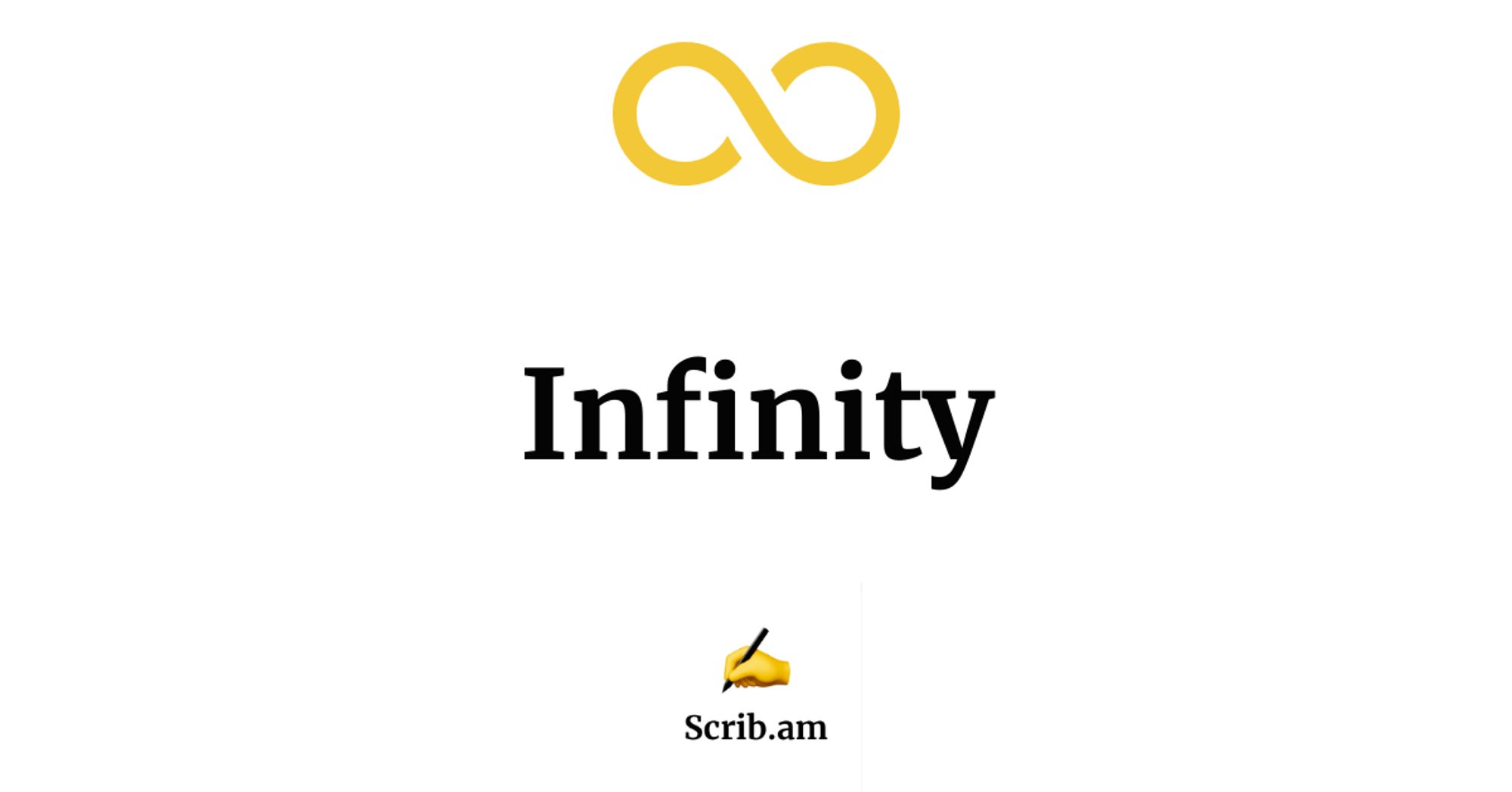When we’re talking about infinity, we mean something that is unlimited, endless.
The symbol ∞ was invented by the English mathematician John Wallis in 1655.
But it seems practically impossible to experience true infinity within the realm of our material universe.

Pi, which relates a circle's circumference to its diameter, is considered to be an irrational number (it cannot be expressed by a simple fraction), an infinite decimal: the digits after the decimal point would go on forever.
If written down, Pi would fill more than the space available in our whole universe.
Pi is also called a transcendental number (Transcendental numbers cannot be expressed as the root of any algebraic equation with rational coefficients).
You can read the first 1 million digits on https://www.piday.org/million/.
The symbol π was first used by the British mathematician William Jones in 1706.
Is the universe infinite?
If we accept that our universe emerged from nothing in a Big Bang 13.787 billion years ago and that it’s expanding at an accelerating speed, we could theoretically travel infinitely and never reach the edge of the cosmos.
That’s the mainstream theory for the ultimate fate of the universe.
Another one posits a Big Crunch will would end with the total collapse of the cosmos, back to zero, ready for another Big Bang.

Along those lines, Sir Roger Penrose, a physician from the University of Oxford, thinks that our Big Bang wasn’t the first and won’t be the last. We would experience one of the phases of a pulsating process, a succession of aeons (cyclical big bangs). His theory is based on the analysis of circular patterns within the cosmic microwave background, pictured above.
Spherical ripples of gravitational waves were generated when black holes collided in the previous aeon.
So there would not be an infinity in the present universe but potentially an infinity across the births and deaths of a succession of universes, which would at a grander scale, experience the same fate as any living being.
There could also be an infinity of parallel universes (multiverse theory), all pulsating at the same time.
Is the material universe finite in both directions, large and small?
Interestingly, the other way round, we don’t know yet how far we’ll be able to dig into the matter to identify the smallest particle. At time of writing (Sept 2022), quarks are the smallest particles we have managed to identify.
We’re stuck in the middle of two unknowns.
Mathematically, if we constantly divided by 2 the distance to reach a destination, we would never get there.
It’s a paradox which was so annoying in the eyes of the ancient Greek mathematicians that they invented a value to fill this final gap and resolve the issue of infinitesimal quantities (too small to be measured).
Is God (the Absolute) infinite?
From a metaphysical point of view, the all-encompassing Absolute witnessing the rollercoaster evolution of all mortal things would be the only true infinite notion, outside of time and space, unaffected by the evolution of universal cycles.
This metaphysical standpoint is aligned with Newton’s argument who said that God has created in infinite space a material system of finite extent. In other words, the Spirit of the Absolute would inhabit the void beyond the limits of our material universe.
God, the Outsider, would be “beyond existence”.
So Infinity would not “exist” in the material sense.
In order to accept the notion of true infinity, it appears that you must believe in an Absolute transcending the limits of spatial and temporal cycles.
We could go on forever discussing this topic.


